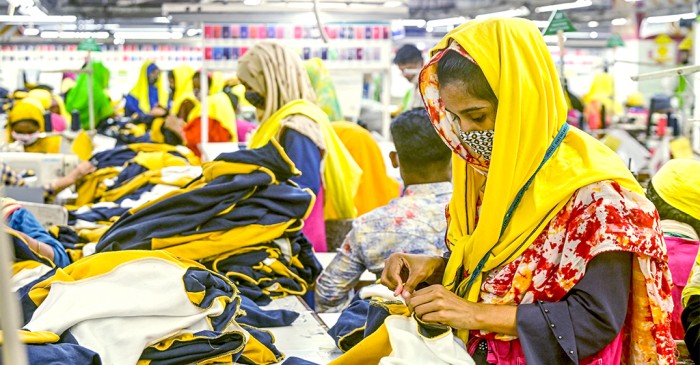

Global trade thrives on cooperation and openness. If countries begin to prioritise protectionist measures at the expense of collaboration, it could lead to a global economic slowdown where no one wins, writes Monjurul Hoque Bhuiyan
IN RECENT years, the global economy has been shaped by the principles of free-market systems and trade openness. However, the United States has introduced a surprising policy that contradicts these principles, particularly under the Trump administration. Known as the ‘reciprocal tariff,’ this policy is based on a trading philosophy that could potentially lead to significant disruptions in international commerce, including for countries such as Bangladesh.


The concept behind reciprocal tariffs is simple: the United States has imposed tariffs on countries based on the trade deficit it has with them. The Trump administration’s new method for calculating tariffs has sparked concern because it does not rely on traditional trade policies focusing on product competitiveness, production costs, or security concerns. Instead, the tariff rate is directly tied to a country’s trade deficit with the US, which is calculated using the following formula:
US trade deficit with country X = (US import from X – US exports to X)
Tariff rate = US trade deficit with country X / US total import from X
This method has drawn criticism because it assumes that countries with more significant trade deficits impose higher tariffs on US goods, even if these countries have no such tariffs in place. For instance, countries that export goods to the United States but do not import anything from it are considered to have a 100 per cent tariff on US goods despite not imposing any tariffs. This skewed approach, many argue, leads to unfair assessments of trade relationships and could have damaging effects on both sides of the trade deal.
Bangladesh’s position
FOR Bangladesh, the impact is significant. Under this policy, Bangladesh now faces a 37 per cent reciprocal tariff on its exports to the United States. This tariff is not a direct result of any new import tax imposed by Bangladesh on US products but is instead a consequence of the trade deficit with the United States. This approach to calculating tariffs has raised several questions about how such tariffs can be adjusted or alleviated.
Specific imports, such as aircraft, machinery, and some retail parts, characterise Bangladesh’s trade with the US. However, adjusting the volume of imports from the US to reduce the trade deficit — thereby lowering the tariff — is no simple task. Significant changes would be required in the types and volumes of goods Bangladesh imports, which would not be feasible in the short term.
Moreover, the direct consequence of the 37 per cent tariff is a price increase for American consumers purchasing Bangladeshi goods. This, in turn, would lead to a reduction in sales, thereby hurting Bangladesh’s export-driven sectors like its garment industry, which relies heavily on US markets.
Global trade landscape
THE implications of the US tariff policy extend beyond Bangladesh. According to recent data, countries like China, Vietnam, and the European Union also face high reciprocal tariffs when trading with the United States. For example, China was hit with a 67 per cent tariff, while the European Union faced a 39 per cent tariff. These high tariffs represent a growing trend in global trade relations that could lead to retaliatory measures, increasing costs for consumers and businesses worldwide.
While proponents of the policy argue that it will help increase US manufacturing and reduce the trade deficit, the question remains: who will bear the cost of this policy? With reduced immigration and a shortage of cheap labour, the United States may struggle to increase its manufacturing output. Furthermore, this could lead to a situation where American companies cannot compete globally due to higher production costs and reduced access to cheaper goods from overseas.
Looking ahead
THE ‘Make America Great Again’ policy behind these tariffs seems to be designed to protect domestic markets, but it raises serious concerns about the future of international trade. If more countries adopt similar policies, the world could face a contraction in global trade and an increase in competitive devaluation, ultimately harming both developed and developing nations.
In the case of Bangladesh, the future of trade with the United States under the reciprocal tariff policy is uncertain. While Bangladesh can undoubtedly work towards reducing its import tariffs on US goods, the question remains whether this will reduce the US tariffs. The relationship between import duties and trade deficits is far from straightforward, and the impact of these tariffs on Bangladesh’s economy will take time to unfold fully.
As we look ahead, the lesson from this situation is clear: global trade thrives on cooperation and openness. If countries begin to prioritise protectionist measures at the expense of collaboration, it could lead to a global economic slowdown where no one wins.
Monjurul Hoque Bhuiyan is a research and teaching assistant in economics at the North South University.

